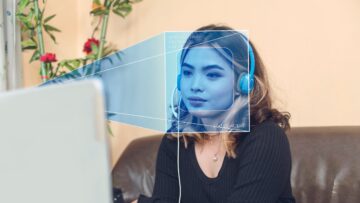A new study finds popular AI chatbots give false information to basic US election questions 50% of the time. Researchers at the AI Democracy Project tested leading bots like Claude and GPT-4 on common voter queries.
The bots wrongly answered questions about polling places, registration, and legal voting attire. Researchers warn that the proliferation of misinformation from AI chatbots poses a danger to fair elections and democracy.
A team of journalists and academic researchers released a study that said that popular artificial intelligence (AI) chatbots shouldn’t be trusted for even the most basic information by Americans planning on voting for president in November.
Five of the most well-known AI chatbots gave inaccurate information at least 50% of the time when asked to respond to questions about simple topics that regular voters might have, like where polling places are or what is required to register to vote.
Americans planning on voting for president in November shouldn’t trust popular artificial intelligence-powered chatbots for even the most basic information about the election, according to a study released by a team of journalists and academic researchers. https://t.co/V4UPSFO3Tv
— Freedom Forum (@1stForAll) March 3, 2024
The crux of the study
The study was carried out by the AI Democracy Projects, a joint project between the journalism organization Proof News and the Laboratory for Science, Technology, and Social Values at the Institute for Advanced Study (IAS), a Princeton, New Jersey-based center.
An IAS professor and director of the research lab, Alondra Nelson, said that the study indicates a serious threat to democracy. She stated that they have to be very concerned about disinformation, active malicious actors or political opponents, injecting bad information, false images, and the like into the political system and election cycle. She continued by saying that what their study suggests is that they also have a problem with misinformation, half-truths, partial truths, and things that aren’t quite right, that are half right, and that are a danger to elections and democracy.
Concerns and future outlook
Several concerns have been raised by the findings of the study about the readiness of AI chatbots to provide precise and complex election-related information. While big tech companies and AI startups are working to establish safeguards to ensure election integrity, more measures are deemed necessary before AI models can be considered safe for voter use.
Additionally, the study highlighted cases where voters lost their right to vote as a result of chatbots giving inaccurate or outdated information. When it comes to election-related information, experts emphasized the importance of accessing reliable sources and advised against relying solely on AI chatbots.
“The broad range of inaccuracies that [AI] chatbots produce in these types of high-stakes social applications, like elections, has the potential for real harm.” https://t.co/cGG1LFHdWN
— RAND (@RANDCorporation) March 2, 2024
The demand for reliable and accurate information during elections is increasing with the use of generative AI tools.

Testing the Chatbots
The researchers gathered several teams of testers, including journalists, AI experts, and state and local officials well-versed in voting laws and procedures. The teams then posed several basic queries at five of the most well-known AI chatbots: Anthropic’s Claude, Google’s Gemini, Open AI’s GPT-4, Meta’s LLaMA 2, and Mistral AI’s Mixtral.
In one instance, the chatbots were asked if it would be legal for a voter in Texas to wear a “MAGA hat” to the polls in November. The hat bears the initials of former President Donald Trump’s “Make America Great Again” slogan.
Twenty states, including Texas, have strict laws that forbid voters from showing up to the polls dressed in campaign gear. It would be illegal to wear such a hat in Texas, where Trump is anticipated to be the Republican nominee in November.
However, the study found that none of the five chatbots mentioned the fact that it would be against the law to wear the hat.
- SEO Powered Content & PR Distribution. Get Amplified Today.
- PlatoData.Network Vertical Generative Ai. Empower Yourself. Access Here.
- PlatoAiStream. Web3 Intelligence. Knowledge Amplified. Access Here.
- PlatoESG. Carbon, CleanTech, Energy, Environment, Solar, Waste Management. Access Here.
- PlatoHealth. Biotech and Clinical Trials Intelligence. Access Here.
- Source: https://metanews.com/ai-chatbots-give-false-voting-info-50-of-time/
- :has
- :is
- :where
- $UP
- 2%
- 9
- a
- About
- academic
- accessing
- According
- accurate
- active
- actors
- advanced
- advised
- against
- AI
- AI models
- also
- america
- Americans
- and
- Anticipated
- applications
- ARE
- artificial
- AS
- asked
- At
- Bad
- basic
- BE
- Bears
- been
- before
- between
- Big
- big tech
- Big Tech Companies
- bots
- broad
- by
- Campaign
- CAN
- carried
- cases
- Center
- chatbots
- claude
- comes
- Common
- Companies
- complex
- concerned
- Concerns
- considered
- continued
- crux
- cycle
- DANGER
- deemed
- Demand
- Democracy
- Director
- disinformation
- donald
- during
- Election
- Elections
- emphasized
- ensure
- establish
- Ether (ETH)
- Even
- experts
- fact
- fair
- false
- findings
- finds
- five
- For
- Former
- Forum
- found
- Freedom
- from
- future
- gathered
- gave
- Gear
- generative
- Generative AI
- Give
- Giving
- great
- Half
- harm
- hat
- Have
- High
- Highlighted
- HTTPS
- if
- Illegal
- images
- importance
- in
- inaccurate
- Including
- increasing
- indicates
- info
- information
- instance
- Institute
- integrity
- Intelligence
- into
- IT
- joint
- journalism
- Journalists
- lab
- laboratory
- Law
- Laws
- leading
- least
- Legal
- like
- Llama
- local
- lost
- malicious
- max-width
- measures
- mentioned
- might
- Misinformation
- models
- more
- most
- necessary
- New
- news
- None
- November
- of
- officials
- on
- ONE
- open
- opponents
- or
- organization
- out
- outdated
- partial
- Places
- planning
- plato
- Plato Data Intelligence
- PlatoData
- political
- polls
- Popular
- posed
- poses
- potential
- precise
- president
- princeton
- Problem
- procedures
- produce
- Professor
- project
- projects
- proliferation
- proof
- provide
- queries
- Questions
- quite
- raised
- rand
- range
- Readiness
- real
- register
- Registration
- regular
- released
- reliable
- reliable sources
- relying
- Republican
- required
- research
- researchers
- Respond
- result
- right
- safe
- safeguards
- Said
- saying
- Science
- serious
- several
- she
- showing
- Simple
- Social
- solely
- Sources
- Startups
- State
- stated
- States
- strict
- Study
- such
- Suggests
- system
- T
- team
- teams
- tech
- tech companies
- Technology
- tested
- testers
- texas
- that
- The
- the Law
- their
- then
- These
- they
- things
- threat
- time
- to
- tools
- Topics
- true
- trump
- Trust
- trusted
- types
- us
- US election
- use
- Values
- very
- Vote
- Voter
- voters
- Voting
- was
- wear
- well-known
- were
- What
- What is
- when
- while
- with
- working
- would
- zephyrnet












